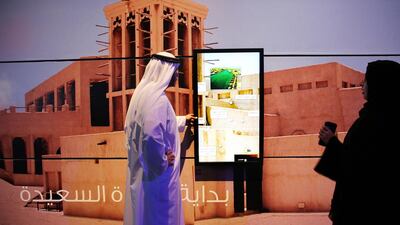Dubai has declared its intentions as a city to not only grow exponentially in size but to become smarter in the way that it handles this growth.
From a project manager’s perspective, Smart Dubai is a single megaproject that integrates a diversity of stakeholders with unparalleled challenges.
It surpasses all of Dubai’s previous headline-making projects – which are mainly from construction, such as the luxury hotel Burj Al Arab, the tallest tower in the world Burj Khalifa – in terms of size, duration, amount of stakeholders to be aligned with and budget.
If Dubai is to meet the completion date of 2018, then in the New Year, key stakeholders should begin make strides in the project.
It will be a huge project, and the question is whether Dubai has what it takes to achieve this smart city vision.
To achieve this vision, Dubai needs:
An aligned vision
Smart means different things to different cities. It could refer to terms such as green, the internet of things or interactivity. Copenhagen, for example, strives to become carbon-neutral by 2025 through a smart approach. London focuses on reducing traffic congestion, whereas Hamburg wants to improve its port traffic flow through innovative application of communications technologies. The definition of a smart city is one that harnesses communications to enhance the quality of services in urban environments. With such a vague definition, many projects battle with conceptual difficulties. Dubai has just started its smart journey and has defined its scope using six pillars: transport, communications, infrastructure, electricity, economic services and urban planning. The project has announced 100 initiatives to be implemented by 2018.
Innovative ideas
Continuous innovative capability is at the heart of the smart city concept. Dubai is only in 46th place on the global innovation index ranking, behind Saudi Arabia, Greece and Poland.
The UAE’s National Innovation Strategy, requiring all government agencies to cut spending by 1 per cent and dedicate the savings to research and innovation, is an important step towards Dubai becoming an innovation hub.
The strategy, with initiatives such as innovation week and innovation prizes, has raised awareness among public and private sectors alike.
Innovation will not come from within the UAE alone. It also needs external catalysts, such as the benchmarking exercises and partnerships to share best practices. At this year’s Dubai International Project Management Forum, there were a number of international organisations, such as Nasa and city of Milan, that shared their experience and best practices, which will be valuable for the smart city concept.
Courage to be bold
A key part in the smart city concept is not only the implementation of incremental improvements in different areas, but the courage to challenge the existing status quo and move infrastructure, roads and houses to make way for ground-breaking concepts.
Dubai has the courage to challenge existing norms and set new standards – it holds 102 Guinness world records, and its smart city applications will be next on that list.
Relentless execution
About 90 per cent of all strategies fail in the execution. Creating a smart city requires exceptionally strong project governance, as it poses challenges in coordination and alignment, stakeholder management, communication and risk management. It means handling a number of completely new concerns, such as data privacy and security.
The project has been made a priority through decrees, laws and funding.
A separate entity, Smart Dubai, has been set up to function as the project management office for most of the subprojects and initiatives.
All major entities in the six smart pillars have received their key performance indicators, government and private sector alike. RTA has announced targets for transport and Dewa for electricity, for example. And the gigantic control room established to measure follow up on smart city initiatives will ensure that the megaproject will stay on course.
Dubai is a city of smart people with the smart ideas, vision, innovative capacity, courage and executional drive to turn the Smart City concept into a reality. Although it is a substantial project, the strategy can overcome various challenges it may face along the way.
This is an exciting time to be a part of Dubai’s incredible growth story, and as we strive to transform our city into one of the smartest cities in the world, it will be fantastic to see this vision come to fruition over the next 12 months.
Inken Lasar is the head of the corporate programme governance division at du

